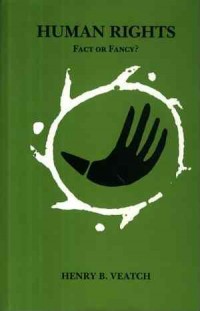
| Dane szczegółowe: | |
| Wydawca: | Louisiana State University Pres |
| Oprawa: | twarda |
| Ilość stron: | 258 s. |
| Wymiar: | 155x235 mm |
| EAN: | 9780807112380 |
| ISBN: | 0-8071-1238-0 |
| Data: | 2005-12-29 |
Opis książki:
In his provocative and highly readable study Human Rights: Fact or Fancy Henry B. Veatch finds the basis for human rights in natural law. He builds his argument step by step, carefully laying the fundation for his central assertion that our basie rights arę discoverable directly in the facts of naturę. Although the bułk of comemporary concern is with the law oniy and not with ethics, Veatch insists that this approach is mistaken because it leaves no place for what Aristotle called "a natural justice." Law must be based on ethics, he maintains, and ethics in tum must be grounded in fact and therefore must have a basis in nature. Veatch calls for a return to the ideas of the ciassical natural-law philosophers. Oniy these ideas succeed in providing a proper rationale for the rights and responsibilities of human beings both as individuals and as members of society. Against this background he discusses the present-day political and legal philosophies of such thinkers as John Rawis, Robert Nozick, and Bruce Ackerman, among others, whose otherwise fruitful insights, Veatch argues, are marred because, concerning natural rights, they remain too hidebound and too uncritical of the tradition of Locke and other eighteenth-century thinkers. "Could it be," he asks, "that recent philosophers have not reckoned sufficiently with what one might cali the essential interdependence of various of the key ethical notions that arę involved-the fact of rights, the fact of duties, and the fact of ends or goals" But if all human laws, both civil and moral, need to be based on nature, how can we attain a knowledge of nature in this sense Veatch argues that it is philosophy that can provide us with just such a genuine, if limited, knowledge of naturę. Although modern science holds that there is no teleology and therefore no basis or foundation for morality anywhere in naturę, Veatch disagrees, asserting that if the scientist wants to know the way nature really is in itself, then the scientist must himself turn philosopher. "For after all, if we cannot rely upon philosophy to provide us with no less than a knowledge of being itself, and of reality, and of the way the worid itself really is, then ... we will really be undone, so far as ethics is concerned." Human Rights: Fact or Fancy is a major contribution to the ongoing debatę about human rights and the foundation of ethics. HENRY B. VEATCH, untii his retirement, taught philosophy for more than forty years at Indiana, Northwestern, and Georgetown universities. Hę is the author of several books, including Aristotle: A Contemporary Appreciation.
Książka "Human Rights. Facts or fancy?" - Henry B. Veatch - oprawa twarda - Wydawnictwo Louisiana State University Pres.
Spis treści:
CHAPTER I
THE LAW IN SEARCH OF AN ETHICS CHAPTER II
NATURAL LAW AS THE ANSWER TO THE LAWS QUEST FOR AN ETHICS CHAPTER III
LAW AS THE IMPLEMENTATION OF ETHICS WITHIN THE POLITICAL SPHERE CHAPTER IV
LAW AND ETHICS IN SEARCH OF A PHYSICS OR METAPHYSICS SELECTED BIBLIOGRAPHY INDEX

